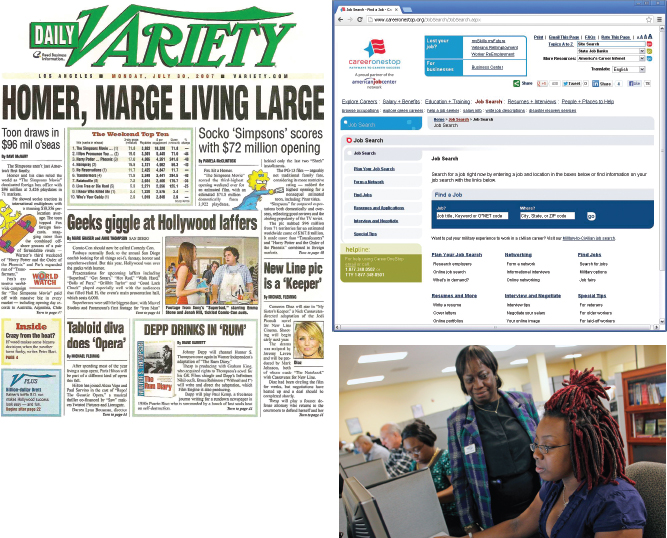The Job Search
Consider the relational context in competent communication (Chapter 1). It is effective and appropriate to respond differently to the same question posed by your doctor, your mother, your boss and your romantic partner. How intimate you are with the person, your relational history, what you know about him or her, and status differences between you have a profound effect on the interview situation.
The first element of preinterview preparation involves identifying potential jobs and then researching the field and the organizations. Although there are many strategies for locating jobs, your three best sources are likely to be people you know or manage to meet, placement centers, and discipline-
A great place to start is with family, friends, professors, former employers, and individuals working in your field of interest. You should also plan to network (Brazeel, 2009). Networking is the process of using interconnected groups or associations of persons you know to develop relationships with their connections that you don’t know. Contact the people you know who work in your field or who might know someone who does, let these individuals know the kind of job you are looking for, and ask for suggestions. You can also make new contacts via social networking services. Use sites like Facebook for more informal networking and sites like LinkedIn for more formal connections. You also can network efficiently through an organization for professionals in your chosen field (many offer student memberships). Whichever connections you make, be sure to remind your contacts of how you met or why you are getting in touch.
Placement centers are another source of jobs. Most college campuses have a centralized placement center where recruiters from major companies come to interview potential employees. And don’t forget print media; search for career-

Finally, start looking for specific job openings. Although general employment Web sites (like Monster.com) can be starting places, they may not yield significant results simply because they attract a large number of applicants (O’Loughlin, 2010); you have less chance of being noticed in a pool of a thousand (or more) than in one of a hundred. A more productive search uses sites that cater to specific industries or even an organization’s site (Pearce & Tuten, 2001; Young & Foot, 2005). For example, mediabistro.com and entertainmentcareers.net focus on jobs in the media and entertainment industries, respectively. You can also find job postings on the Web sites for most major companies and organizations (look for links to “Careers” or “Employment”). Consider using job information and posting aggregators (such as LexisNexis) that will let you set criteria or parameters for the types or even geographic locations of positions you want. Doing so will put you in touch with sites that have less traffic and give you a better chance of being noticed.